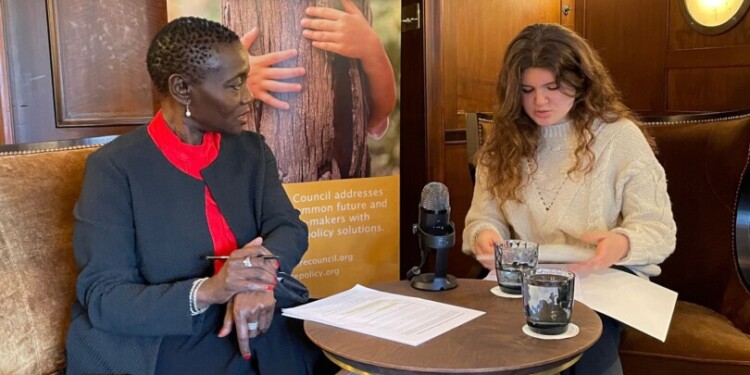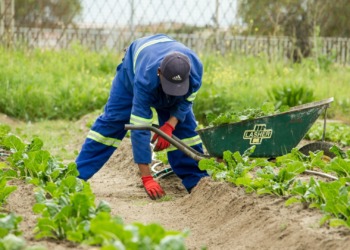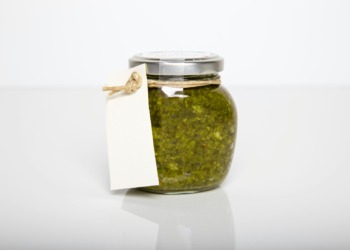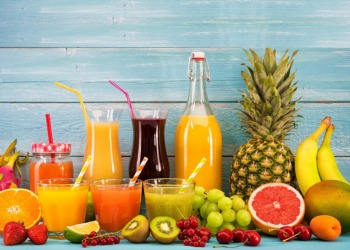This is the seventh article in the series “The Good Council”, based on the podcast from the World Future Council. It gives a behind-the-scenes look at the organization’s trajectory, from revolutionary idea to reality, and offers insights on its current agenda. The Good Council podcast provides inspiration, laughter, and food for thought through intergenerational dialogue between its founders, senior Councilors, and young entrepreneurs and activists from around the globe.
What are best practices and sustainable solutions for our common future? How can we leave the planet in better shape for future generations? These are the questions the World Future Council has set out to answer.
The World Future Council aims to give our children and grandchildren a healthy planet with just and peaceful societies – now and in the future. To achieve this, the foundation identifies, develops, highlights, and spreads future-just solutions for current challenges humanity is facing and award them with the unique Future Policy Award. The Council consists of fifty eminent global changemakers from civil society, science, politics and business. They meet annually at the World Future Forum to discuss the most urgent challenges and policy solutions to them.
In the ninth episode of The Good Council, 17-year-old Youth:Present representative Raina Ivanova talks with Dr Auma Obama. Dr Obama is a Kenyan sociologist, journalist, author, and speaker and she’s a very powerful activist who supports many projects in the east of Africa and who has successfully created her own foundation called Sauti Kuu to empower young people. She’s also a Councilor at the World Future Council.
Dr. Auma Obama is a leading advocate for the rights of girls, boys and young people. She brings, among other things, initiates intergenerational dialogues and enabling platforms to give children and young people a voice. In conversation with our Youth:Present representative Raina Ivanova, we learn how Dr Obama started her life in Germany fighting the fight for her convictions and how she has kept up that fight till today.
Raina Ivanova
In 2010, you started your own foundation: Sauti Kuu. What does Sauti Kuu mean, and what was your driving force
Dr. Auma Obama
Sauti Kuu means powerful voices. I started the foundation because I wanted to create a sustainable way to help change the lives of the disadvantaged that was not just funds-driven, a problem that many non-profit organizations have to deal; a of projects that only last for as long as funds are available, usually three to five years, and then abruptly end leaving beneficiaries and local staff alike with, in the former, no continuity, and in the latter case, unemployed. For both it is – in my opinion – like falling off the edge of a cliff. What happens to the children when the project stops? In three years, even five, you have not even scratched the surface of their lives. They go back to their ‘old’ lives and fall into an even deeper slump because now they’ve experienced the possibilities, chances and opportunities offered by whatever program they were part of. Because suddenly there is nothing there any more. So, I saw a gap that I felt needed to be filled. I wanted to show that programs must be run in such a way that the beneficiaries are the key focus. There must always be continuity for them and they must never be affected by lack of or limited funds. Funding must be managed in such a way that the projects are not affected and are continuous. This is the only way to guarantee making a sustainable, and long-term impact on the lives of the beneficiaries. This is what we strive to do and what is happening at Sauti Kuu.
Raina Ivanova
That sounds like a sustainable model! Besides Sauti Kuu, you are also involved with the World Future Council. What does it mean to you to be a Councilor?
Dr Auma Obama
It means a lot to me. Celebrating and championing good policies, influencing policies that are not good to align with what needs to be done to ensure that future generations have a future. This is very important to me,. I work with children. So, all of what happens at the World Future Council is helping, supporting, and promoting my work. To be part of the Council in all that it is striving to achieve is the most natural thing for me, and I see how we are able to achieve quite a bit. We’ve managed to celebrate and highlight many good policies that not only work well for children and young people but work well in general for communities, for countries, and for our world at large. We however need a lot more publicity, a lot more people involved and a lot more visibility. And I hope that I am able to give us that and let people know about the great work that we are doing at the World Future Council.
Raina Ivanova
In Germany the movement Fridays for Future gets increasingly more recognition. This is a model that I think is the biggest in Western countries. How do you feel about it?
Dr. Auma Obama
It’s wonderful to see that even as you interview us Councilors, we are having an interaction with you, the younger generation. That is, for me, key. I do think it is good that young people are able to go out and demonstrate, to have a voice and an opinion. But I think it cannot be to the exclusion of the older generation. So as much as I admire the movement, as much as I recognize and appreciate Fridays for the future, the energy, the courage, the motivation, the passion that goes with all the movements that young people are involved in now; I want to remind young people that what they’re doing, and I don’t say it without respect, is not new. It has been done before. Every generation has had a movement. But the problem with most of the movements, why many failed, was because they were done to exclusion of the older generation. What really needs to happen, be it Fridays for Future, be it Youth:Present, be it any other organization, is a conversation between the younger and older generation to together come up with solutions for a better more sustainable future. Only together can we make real change happen.
This is something you as young people need to take into consideration. Hopefully you discuss this generation gap among yourselves.
Raina Ivanova 1:09:25
Yeah, definitely. We talk a lot about this generational conflict in connection with youth participation. Because often I feel, as a young person, that youth participation is meaningful, but that it’s superficial, and that youth are being invited to, for example, conferences, and they give us the platform to speak for a few minutes and then we go home again. We don’t really have a meaningful impact. I think that is something that is very sad. Because as we can benefit from the knowledge and experience from older generations, they can also benefit from our perspective, which is why I think, and I agree with you, that we need to work together to create meaningful change.
Dr. Auma Obama 1:10:19
Yes, that’s true and, it is a problem inviting youth to an event, having them speak for a second, and then sending them off. That must be extremely frustrating. One must therefore be brave enough to say ‘No!, I’m not coming! We’re going to have our own event and we’re going to invite you. ‘ Why didn’t you do that? Have your own events, invite us and then send us home. That would be the way to do it – on your terms and not ours.
Raina Ivanova
Trying to change the processes we are talking about can be long and frustrating. What is one thing that keeps you motivated and striving towards change?
Dr. Auma Obama
I think what keeps me motivated and striving toward changes is situations like this – talking to you, with your 17 years, hopeful, active, interested, caring. This is what keeps me going because I know that it is my responsibility to continue because you all are out there doing your part. Why would I give up when you’re not giving up? Why would I give up when I can support and create platforms that enable you to have a voice. That’s what I do. We create platforms, we create spaces where young people can use their voice and be active. We demand it of them. We push you in that direction, because we know that only by being an active participant can you make the difference in society that you strive for. Don’t be a victim. A passive participant is a victim. You can determine your destiny, be responsible, be part of the decision-making process that enables you to have the kind of life that you want to live.
Raina Ivanova
You once described yourself with the following words: Human, woman, African, Kenyan,
and a bridge between cultures. What do you mean by that?
Dr. Auma Obama
I think I will start with the first one, being human. First and foremost, I see myself as a human being. Because before I’m a woman, before I’m an African, I’m a human. Being a human just means that I’m on this earth like any other human. If I’m able to interact with people as a human being, be it with a man, woman, a white person, a Black person, then we’re equal. There’s no discussion around gender equality, equity or race, because we are all just humans. Hence we measure ourselves against each other as humans. I am then proud to be a woman because I love being a woman. I also promote women because society is not accepting of women in a way that allows us to just be humans. Too often women are discriminated against and ‘left behind’. So, we need to work towards making sure that this does not happen. I am an African, a Kenyan, as well, because that is where I come from, that is my identity. I am also proud of that fact. But it is not the only thing that define me. I’m more than that. It enriches my identity. Being a woman, African, Kenyan, these are all points of discrimination, except for the first, being a human. All the others are points you can be discriminated against based on being black, being a woman, being an African.. But you can’t be discriminated against based on being a human. Because no human can discriminate against another human, since we are all humans.
Raina Ivanova
When you look into the future, for example, considering discrimination, but also many other challenges that we are currently facing, are you hopeful?
Dr. Auma Obama
I am more than hopeful. Because to me, just being hopeful is a bit passive. This is because you can be hopeful but still just sit there and hope. It’s a little bit like a bus stop scenario. You’re hoping the bus shows up? No, the bus must show up. It’s on time. It’s 8:40 and at 8:40 it will be there. I’m not hopeful. I know we can do better. I know we can live differently. I know there are solutions that can improve our lives as human beings, that can ensure that our young people have a better future. We know what we need to do, we just don’t do it. Because we want to make money. Because we are comfortable. Because we’re afraid. There are however solutions out there. That is what I believe and that is how I live my life. You must compromise; you must have less sometimes. You can’t be greedy, you can’t just want to consume, you can’t always be in first place. There is always a way out. You can negotiate spaces to find solutions. That is what I believe. And that’s why for me, it is not enough just to live in hope. I believe in being an active participant in making change happen.
Every other week we will see the Councilors get together with young activists and changemakers from around the globe, who are also part of WFC’s youth forum Youth:Present. New episodes are released every other Monday, from 6 September 2021. www.worldfuturecouncil.org/the-good-council/.
Editor’s Note: The opinions expressed here by Impakter.com columnists are their own, not those of Impakter.com. — In the Featured Photo: Dr. Auma Obama and Raina Ivanova . Featured Photo Credit: The World Future Council










